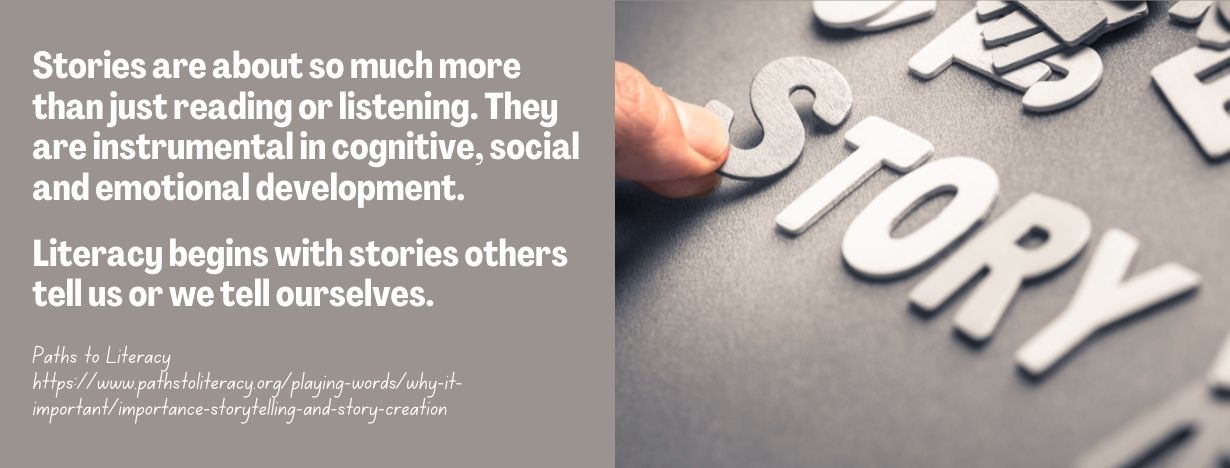Writing an essay appears to be a dreaded task for many college students. They find the task of writing for a scholarship, a class, or even a contest to be overwhelming. But anyone willing to learn can write and pick from numerous short ideas for college students!
By the end of high school, you had most likely mastered many of the critical conventions of standard academic English, such as sentence-level mechanics, paragraphing, and thesis statement use.
On the other hand, college writing assignments require applying those skills to new intellectual challenges. Professors assign papers for you to think rigorously and deeply about important issues in their fields, which will help you in real-world situations.

Short Story Ideas for College Students
Death
Let’s be honest, readers: we all enjoy a good death scene.
Death is an extremely popular short story idea that dates back to the dawn of time. It is a core component of the human experience, whether it’s magic, myth, or religion, which is why so many stories deal with it.
Most readers are fascinated by the concept of death, which can take many forms, ranging from comedy to drama to tragedy. Good writers do not avoid death because they recognize the many opportunities for connecting with an audience.
Keep in mind these tips for writing an excellent short death story:
- Create a strong bond between the character and the reader.
- Use natural adversity as your opponent as little as possible.
- Make a chain reaction based on the death scene.
- Avoid spoon-feeding overused cliches to your readers.
- Avoid killing characters solely for the sake of shock value.
- Do not seek a quick death.
- Try to strike a balance between the build-up and the shock value.
- Link the death scene and the early moments.
- Make a legacy for the character.
Example: The wife of a dying husband tries to cope with his death while he is still alive. What will she do to cope?

Supernatural
Supernatural is a relatively new addition to the list of concepts. This urban fantasy genre includes subtle magic, monsters, the occult, demons, ghosts, and even God and the Devil. Unlike Fantasy, it is not limited by period and has a much darker feel. It also frequently uses the sciences, as it takes place primarily in the modern era. Surely you’ve had thoughts of supernatural occurrences at some point during your childhood, now’s probably the time to use it.
Writing a short story about supernatural things can be difficult because it is more complex than writing about ghosts. Consider these pointers to help you write a captivating short supernatural story:
- Create the origins of your universe and the human race with great care.
- Give your spiritual entities’ motives and characteristics appropriate for what they are. Nothing is more annoying than a work of fiction that contains dense demons or dense immortals.
- Set strict and well-defined boundaries for your supernatural entities. While this is especially important when using a supernatural entity as a protagonist, having clearly defined limits for supernatural entities is always essential.
- Consider how humans will react to the supernatural.
- Stay away from the tired cliches of the supernatural genre.
- Combine mystery and discovery. After all, the supernatural is part of science.
Example: You and your friends were caught up in a storm on the island and mysteriously reappeared after being presumed dead for two years.

Orphans
From Roald Dahl’s The BFG to Paul Yoon’s Run Me to Earth to L.M. Montgomery’s Anne Shirley to J.K. Rowling’s Harry Potter in the Harry Potter series, it’s clear that readers love orphans, or at the very least, root for them. Writing about orphans has a practical or functional component for many writers.
There is no more heartbreaking trope than the orphan. Usually poor, frequently abandoned, free of the past with only the future to look forward to, and imbued with goodness that no one else can see unless they look more closely because someone truly cares about them. Also, orphan short story ideas tend to poke us with our fear of being alone.
Remember that you will be writing about an orphan, and you will most likely begin when they were a child. Check out these guidelines for writing about a child’s character:
- Never mention “child character” when you introduce your character, as you would not say “American character” or “female or male character.”
- Instead of making your child’s characters sagely wise, make them bright.
- Give each of your child’s characters a personal goal.
- Create your child’s character as a distinct individual.
- Don’t make your child’s character too childish. But don’t do the opposite: don’t create child characters who are adults in small bodies.
- Create a plot twist that will link back to when they were still a child.
- Always end the story with a happy ending.
Example: A young orphan whose parents died in a car accident, but he never felt at ease in that blessed home. Will he go out in the real world to fend for himself or wait for his lucky day?

Ghosts
You don’t need prior experience with the supernatural genre to write about ghosts. Your lack of experience may benefit you because you will have a unique perspective on the paranormal or spiritual world. Even if you don’t believe in them, they make for good short story ideas, whether they’re a malevolent force wreaking havoc on one or more characters or a helpful spirit guiding someone in need.
Here are ways to make ghost storytelling fun at the same time intense:
- Choose whether you want to be funny or serious. Of course, you can do both, but you should decide on the overall tone of your story first.
- Choose whether you want your readers to fear or cheer for the ghost.
- The most common ghost story takes place inside a deserted house or building. Read stories from the Caribbean or Asian countries if you want to spice things up. They’ll give you some very different perspectives on ghosts!
- Tell your ghost a story about their life.
- Set some ground rules for your ghost.
- Please research the paranormal world to bring your story to life and make it more credible.
- Ghosts are roaming almost anywhere these days. You can try a different approach by having your ghost appear during the day.
Example: A young woman was drinking at her birthday party. She woke up thinking she only slept one day but turned out she had been dead for three days. She became a ghost who could only communicate with the one person with whom she had a great bond.

Breakups
Breakups are popular short story ideas, whether based on personal experience or made up by the author. A breakup is a traumatic experience. Even if you are emotionally detached from them by the time you break up, you once loved them, and ending the relationship will usually cause you to feel a sense of loss.
Writing short stories about breakups will surely relate to most of your readers. And since they, too, felt the pain, they will be more attached to your story. But readers will be more engaged in your story if there’s tension build-up. Here are a few ideas for increasing tension:
- Allow minor details about the other person to irritate your character.
- Allow the character to feel as if they are walking on eggshells in the presence of their partner.
- Allow them to debate morality, ethics, politics, animals, and religion. Things that seemed abstract or tolerable in the past become significant.
- Allow jealousy to creep into everything.
- Allow yourself to develop a lack of empathy for the other.
- Allow the characters to stop referring to each other as friends.
- Make it a point to keep certain topics off-limits.
- Demonstrate a lack of respect. They might call each other names or make fun of each other.
- Make use of body language. Examples include rolling your eyes when your partner is speaking, crossing your arms, or turning your back.
- Make use of silence.
Example: A young woman found out that her fiance was actually married and now decided to leave him.

Fear
We all can relate to having several phobias, making fear a popular topic for short stories. Humans bear a vital responsibility in the face of fear. We couldn’t protect ourselves from threats if we didn’t feel fear. Fears can range from the seemingly innocuous to the terrifyingly real. You can captivate readers by demonstrating how the protagonist transforms their fear into strength and overcomes obstacles.
Here are writing techniques that imply more fear and interest in your readers:
- Define your character’s primary fear. Then go for the jugular and force them to confront it. What will they do if the worst happens?
- Consider introducing external elements that cause fear, in addition to your character’s emotional fears.
- Think of yourself as a child terrified of a monster lurking beneath their bed.
- Play with your readers’ minds. Place your character in a world that appears to be one thing but is another. You’ll keep your character (and your readers) guessing, and as you gradually reveal that reality isn’t “real,” the fear level will rise.
Fear is more than just an emotion. This powerful tool can catapult your writing to the next level. Make sure your characters’ sense of fear is balanced with the source of the fear—audiences dislike it when you overdo it or apply it too thickly.
Example: A bright young student is about to graduate but fears rejection. How will he cope after a job application rejection?

Psychopaths
According to a recent study, 4.5 percent of the population is psychopathic. This means that we will undoubtedly encounter at least one psychopath in our lives. Furthermore, many of us have been intrigued by psychopaths, whether through movies, books, or other accounts of sadistic historical figures.
So why not write about it?
Psychopaths are topics for strong character development. The natural reaction would be to turn them into serial killers, pushing your protagonist to the breaking point. However, there is so much more you could do. What about a tortured lover who cannot form the emotional connection your protagonist craves? Or a tyrannical boss? There are virtually limitless possibilities.
Before you begin creating a psychopathic character, consider the following characteristics of an actual psychopath:
- Psychopaths prefer to do things their way. They’ll go to any length to obtain it.
- A lack of emotional intelligence distinguishes psychopaths. Rather than feeling the emotions, they act in the way they believe they should in a given situation.
- Psychopaths can act as if they are feeling something, and they may even be in a relationship, but they will not feel the same as the rest of us.
- Psychopaths enjoy being in charge.
- Psychopaths are enamored with themselves even if no one else is.
Example: A woman became friendly with a psychopath who perceived her kindness as a hint of seduction. What will the psychopath do with the woman after rejection?

Natural Disaster
Natural disasters have become a growing concern in recent years. The effects of these disasters are felt in communities worldwide, including communities close to many students’ homes. There are countless ways to frame a short story centered on natural disasters.
Consider a real-life natural disaster like Hurricane Dorian. Consider how many survival stories there are among the thousands of people who lived to tell the tale. A story about a natural disaster can keep readers interested whether it ends fatally or produces a hero of great bravery.
Readers are fascinated by disaster stories, but they also want to find hope amid the storm. See these guidelines for writing your short story:
- Investigate and conduct research. This will provide you with greater depth and accuracy.
- Begin to instill hope in your character. It should be focused on how your character responds to challenges.
- Characters don’t necessarily need to change fundamentally. Your character only needs to act with grace and humor – and throw in a bit of action. What could be more hopeful than that?
Example: The protagonists experience an unexpected storm that catches everyone off guard. Your protagonist must seek shelter and supplies while avoiding the dangers surrounding them. Will they work with the other survivors or fight them for survival?

Crime
Crime short stories are often page-turners that readers find difficult to put down because of the drama, intrigue, thrilling action, and problem-solving. It can be an equally exciting process, as your imagination creates mystery and momentum. However, we must state that this concept primarily feeds women.
According to a study, this genre has grown in popularity among women of all ages. The surge in the popularity of crime stories was due to a growing appetite among women.
If you want to write your own crime story, keep the following tips in mind before you start:
- Immerse yourself in the crime genre to hone your crime-writing skills. Read every great thriller, murder mystery, whodunit, true-crime story, and detective novel you can get your hands on.
- Write about what excites you.
- Don’t always assume your readers are familiar with good detective stories. So, always do your homework.
- Begin with the crime right away. You want to immerse your readers in the drama.
- Make heroes with flaws. If the characters are flawed or have conflicting motivations, it will feel more realistic.
- Remember that dead bodies aren’t just plot devices; remember to pay tribute to the victims.
- Create natural cliffhangers that make it difficult to put your story down.
Example: A writer working on a biography of a Golden Age movie star discovers evidence that leads him to believe she was a murder victim, contrary to the official story.

Physical or Emotional Scars Story
As Stephen King would say, “To be a writer, the only requirement is the ability to remember every scar.” If you’re stuck on short story ideas, look for a physical or emotional scar in your past and turn it into a story. We won’t get into whether writing about past traumas is therapeutic or not. But we can tell you that this approach to writing has proven helpful to writers and college applications.
You could be dealing with a single sad scene or an emotional story in which tragic events are central to the plot. In any case, the following suggestions will help you infuse genuine emotion into your writing:
- Make use of your own emotions. It’s critical to remember that emotion exists within you; all you have to do is access it and express it on the page.
- Understand the distinction between sentimentality and truth.
- Allow for the possibility of being surprised by a specific detail. That is how you will elicit natural emotion in your readers, especially if you show rather than tell.
- Combine strong and everyday emotions.
- You can use backstories to add weight. A backstory that foreshadows a sad event can make the climax feel more intense.
Example: You experienced bullying during your teen years, affecting your well-being. How will you overcome it?
Remember that deliberate practice—that is, focusing intently on improving one’s skills—makes all the difference in one’s performance. Revisiting the craft of writing, especially early in college, will enhance your writing far more than simply churning out page after page in the same old way.
Being an excellent communicator will save you a lot of time and trouble in your studies. It will also help your career advancement and promote better relationships and a higher quality of life outside the workplace. Honing your writing skills is a good use of your limited time.
Consider this: According to Fast Company magazine, effective communication is mentioned 35 times more frequently in job postings than other soft skills. Other highly valued skills include technical ability, critical thinking, multi-tasking, teamwork, creativity, and leadership.
Here are a few tips to write effectively and make it more enjoyable:
- Choose a topic and draft an outline for your work. An outline is a basic framework for your paper. It provides the framework for you to fill in with details. The outline keeps you organized and keeps you from going off on a tangent.
- Determine what your professor might want. Make notes about your professor’s instructions before writing your story if you want to be a strong writer. This will influence your writing style, communication methods, and even subject matter.
- Make a powerful first impression. When writing a short story, you should begin by posing a dramatic question. Readers will be unmotivated to continue reading if there is no dramatic question.
- Bring the story to life. We can find stories and details everywhere if we listen to fragments of stories in overheard daily conversations.
- Read your work aloud. When you’ve finished the first draft, the real fun begins with editing. Consider reading your draft aloud to help you catch errors and overuse of words.
A good story is an art form. But, thankfully, it’s also a craft, and the skills and techniques, like any craft, can be learned by anyone.
